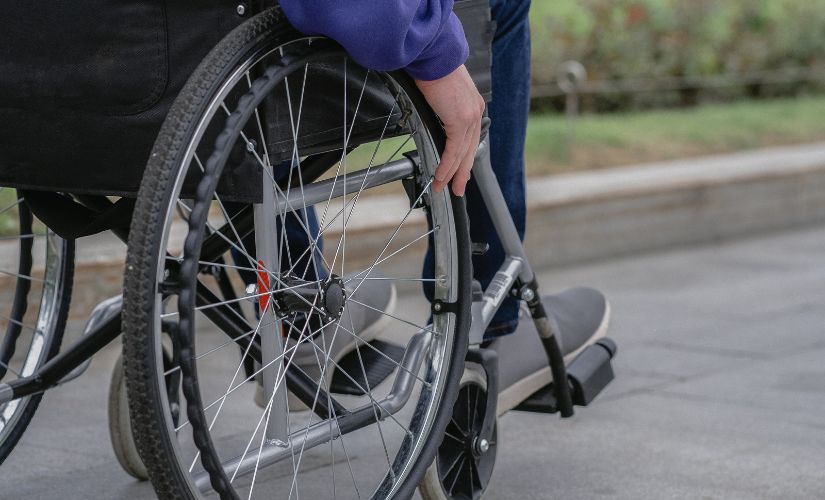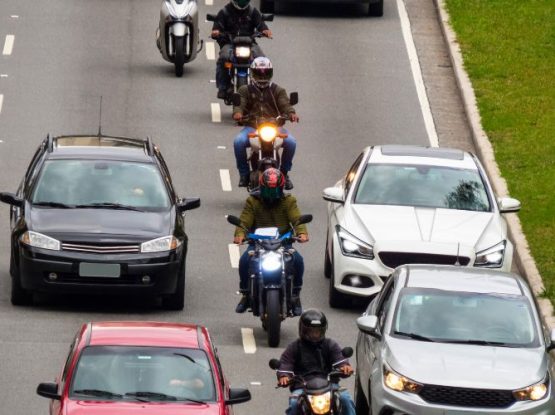Motorcycle accidents often leave victims facing not only immediate injuries but also significant long-term consequences that affect nearly every aspect of their lives. These injuries can have a profound impact on physical health, mental well-being, finances, and social relationships. Unlike car accidents, motorcyclists are especially vulnerable to severe injuries due to their limited protection. This article delves deeply into the long-term physical, emotional, financial, and social impacts of motorcycle accident injuries, offering insights into how victims can navigate their recovery and future.
Physical Impacts
Motorcycle accident injuries can lead to long-term physical issues, ranging from chronic pain to permanent disabilities. These conditions not only limit a person’s ability to engage in daily activities but also require continuous medical care and lifestyle adjustments.
Chronic Pain and Joint Issues
One of the most common long-term physical impacts is chronic pain, particularly from injuries such as fractures, dislocations, or ligament tears. For example, a motorcyclist who suffers a broken leg may heal initially, but residual pain, stiffness, and inflammation can persist for years, making activities like walking, climbing stairs, or exercising difficult.
In addition to pain, victims often develop arthritis in previously injured joints. This can lead to mobility issues, requiring regular physical therapy, injections, or even surgery in severe cases. Chronic pain not only diminishes quality of life but may also prevent individuals from returning to their previous occupations or hobbies.
Neurological Impairments
Injuries involving the head or spine are particularly devastating. A traumatic brain injury (TBI) can result in long-term problems such as seizures, memory loss, or reduced cognitive function. Even minor concussions, if untreated, may lead to chronic headaches, dizziness, or sensitivity to light and sound. Similarly, spinal cord injuries can result in partial or complete paralysis, requiring assistive devices like wheelchairs and ongoing care.
Respiratory and Cardiovascular Complications
Chest trauma, such as rib fractures or lung punctures, can lead to long-term breathing difficulties. Victims may experience reduced lung capacity or chronic respiratory issues, limiting their ability to engage in physical activities. In some cases, injuries can affect cardiovascular health, particularly if the trauma involved internal bleeding or damage to blood vessels.
Scarring and Disfigurement
Severe injuries from road rash, burns, or lacerations often leave permanent scars. These visible reminders of the accident can significantly affect a person’s confidence and self-image, particularly when they involve the face or other highly visible areas.
Mental and Emotional Impacts
The psychological effects of a motorcycle accident can often be as debilitating as the physical injuries. Victims frequently struggle with emotional trauma, which can have lasting repercussions on their mental health and relationships.
Post-Traumatic Stress Disorder (PTSD)
PTSD is a common psychological consequence of serious accidents. Victims may relive the traumatic event through flashbacks, nightmares, or intrusive thoughts. For motorcyclists, PTSD can manifest as a deep fear of riding or driving, which limits mobility and independence. Untreated PTSD can lead to severe anxiety, insomnia, and avoidance behaviors, disrupting personal and professional life.
Emotional Instability
The recovery process often triggers feelings of anger, frustration, or helplessness. Victims may struggle with the loss of physical abilities or the challenges of adjusting to a new lifestyle. This emotional instability can lead to strained relationships, social withdrawal, and a diminished sense of self-worth.
Depression and Anxiety
Many victims experience depression as they cope with the aftermath of their injuries. The inability to return to work, financial pressures, or chronic pain can exacerbate feelings of sadness and hopelessness. Similarly, anxiety about future accidents or medical procedures can become overwhelming, affecting the individual’s ability to enjoy life fully.
Cognitive Impairments
For those with brain injuries, challenges like memory loss, difficulty concentrating, and reduced decision-making skills may persist. These cognitive impairments not only hinder daily activities but can also make it harder to regain employment or maintain relationships.
Financial Impacts
Motorcycle accident injuries often lead to significant financial burdens, which can extend for years or even a lifetime. From medical bills to lost income, the financial repercussions are one of the most daunting aspects of recovery.
High Medical Expenses
Medical costs for motorcycle accident victims can be astronomical. Emergency surgeries, hospital stays, rehabilitation programs, and follow-up treatments quickly add up. Advanced therapies, such as stem cell treatments or spinal surgeries, may be necessary for severe injuries, further increasing expenses. Victims often face ongoing costs for medications, mobility aids, or specialized care.
Lost Earning Potential
Many victims are unable to return to work for weeks or months, leading to a significant loss of income. In severe cases, permanent disabilities may force victims to change careers or stop working altogether. This loss of earning potential not only affects the individual but also their families, particularly if they were the primary breadwinners.
Legal and Insurance Challenges
Although insurance is designed to cover accident-related expenses, victims often face resistance from insurance companies. Lengthy legal battles to secure adequate compensation can be expensive and stressful. Without expert legal assistance, many victims struggle to recover the full costs of their injuries.
Additional Expenses
Beyond direct medical costs, victims may incur expenses related to home modifications, vehicle replacements, or ongoing childcare. For instance, installing ramps, widening doorways, or purchasing adaptive vehicles are common adjustments for individuals with mobility challenges.
Social and Relationship Impacts
The ripple effects of motorcycle accident injuries extend beyond the individual, affecting their social network, family, and friends.
Family Strain
The emotional and physical demands of caregiving can strain even the strongest relationships. Family members often take on new roles as caregivers, leading to stress, fatigue, and resentment. Financial pressures may exacerbate these tensions, especially if the victim is unable to contribute financially.
Loss of Independence
For many victims, losing the ability to drive, work, or perform daily tasks independently can be a major blow to their sense of autonomy. This loss often leads to frustration and feelings of helplessness, particularly for those who were highly active before their accident.
Social Isolation
Mobility challenges, chronic pain, or emotional trauma often prevent victims from participating in social activities. Over time, this isolation can lead to loneliness and a diminished support network, further exacerbating emotional struggles.
Altered Friendships
Friends and acquaintances may struggle to understand or accommodate the victim’s new limitations, leading to strained relationships. Victims often report feeling like a burden, which can lead to further withdrawal from social interactions.
Recovery and Coping Strategies
Recovering from a motorcycle accident is a long and complex process that requires a multifaceted approach. While the journey is challenging, adopting the right strategies can help victims regain a sense of control and improve their quality of life.
Comprehensive Rehabilitation
Physical therapy is essential for restoring mobility, strength, and function after an accident. Occupational therapy can help victims relearn daily activities, while speech therapy may be necessary for those with brain injuries. Holistic treatments, such as acupuncture or massage, can also alleviate chronic pain and promote healing.
Mental Health Support
Psychological counseling, support groups, and mindfulness practices are invaluable for coping with emotional trauma. Victims should consider working with a therapist experienced in trauma recovery to develop healthy coping mechanisms and rebuild confidence.
Legal Advocacy
Hiring a skilled motorcycle accident attorney can make a significant difference in the recovery process. An attorney ensures that victims receive fair compensation for medical expenses, lost wages, and emotional suffering, alleviating some of the financial stress.
Community Resources
Local organizations or non-profits often offer financial aid, peer support, or vocational training for accident survivors. Leveraging these resources can help victims rebuild their lives and regain independence.
Conclusion
The long-term impacts of motorcycle accident injuries are far-reaching, affecting physical health, mental well-being, finances, and social relationships. Victims often face significant challenges in navigating their recovery and rebuilding their lives. However, with access to medical care, psychological support, and legal assistance, it is possible to overcome these obstacles and achieve a fulfilling life.
If you or someone you know has suffered from a motorcycle accident, seeking professional legal representation is crucial. Contact Motorcycle Accident Attorney Orange County to ensure your rights are protected and to secure the compensation you deserve for your injuries and losses.




